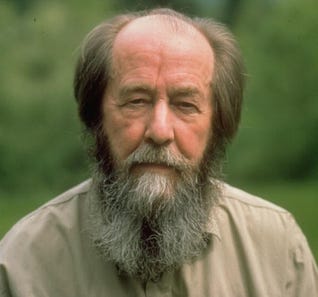|
 |
The Writer's Almanac from Monday, December 11, 2006
"Bypass" by Susan Kelly-DeWitt, from Greatest Hits 1983-2002. © Pudding House Publications.
It's the birthday of the novelist Jim Harrison, born in Grayling, Michigan (1937). His big breakthrough was the book Legends of the Fall (1979). It was so successful that Harrison was able to buy a farm near his old home in Michigan, as well as a cabin in the woods of the Northern Peninsula. He said, "Ever since I was seven ... I'd turn for solace to rivers, rain, trees, birds, lakes, animals. If things are terrible beyond conception and I walk for 25 miles in the forest, they tend to go away for a while."
Jim Harrison said, "I like grit, I like love and death, I'm tired of irony. ... A lot of good fiction is sentimental. ... The novelist who refuses sentiment refuses the full spectrum of human behavior, and then he just dries up. ... I would rather give full vent to all human loves and disappointments, and take a chance on being corny, than die a smartass."
It's the birthday of Thomas McGuane, born in Wyandotte, Michigan (1939). He's the author of many novels, including Ninety-two in the Shade (1973), Nothing but Blue Skies (1992), and The Cadence of Grass (2002).
It's the birthday of Russian writer Aleksandr Solzhenitsyn, born in Kislovodsk, Russia (1918). He grew up a committed communist, and never questioned the party line. He even brought a copy of Das Kapital along on his honeymoon for pleasure reading.
He became a decorated war hero during World War II, promoted to first lieutenant and then captain. But after the end of the war, he was suddenly arrested by Russian authorities for supposedly criticizing Stalin in one of his personal letters. He was sentenced without a trial to eight years in a labor camp. He spent time at a few different camps, but eventually wound up at a hard-labor camp in Kazakhstan, where he worked as miner, bricklayer, and a foundry man.
His time in the Gulag changed his life, because he found that most of the men there had already rejected the Soviet government. In a strange way, it was only in the Gulag that Russians spoke freely about their political beliefs without fear of retribution. Solzhenitsyn later wrote, "You can have power over people as long as you don't take everything away from them. But when you've robbed a man of everything, he's no longer in your power."
It was in the Gulag that Solzhenitsyn began to write seriously for the first time. To keep his work from being seized, he would compose on tiny paper scraps, commit his words to memory, and then destroy the paper. He was finally released from his labor camp on the day of Stalin's death in 1953, and when Nikita Khrushchev relaxed censorship laws, Solzhenitsyn was able to publish his novel One Day in the Life of Ivan Denisovich (1962).
He went on to write a seven-volume history of the Stalinist labor camps called The Gulag Archipelago. The first volume was published in Paris in 1973, and that book got him deported from the Soviet Union. He settled in Vermont, where he tried to live as quietly as possible, rarely speaking in public. He lived there for 13 years, and then, in 1993, he was finally allowed to return to his homeland. He's been living in Moscow ever since.
Solzhenitsyn wrote, "For a country to have a great writer is like having a second government. That is why no regime has ever loved great writers, only minor ones."
It's the birthday of American short-story writer Grace Paley, born in New York City (1922).
Be well, do good work, and keep in touch.®
Garrison Keillor might be coming to a city near you! CLICK HERE for details and tickets!
If you are a paid subscriber to The Writer's Almanac with Garrison Keillor, thank you! Your financial support is used to maintain these newsletters, websites, and archive. If you’re not yet a paid subscriber and would like to become one, support can be made through our garrisonkeillor.com store, by check to Prairie Home Productions, P.O. Box 2090, Minneapolis, MN 55402, or by clicking the SUBSCRIBE button. This financial support is not tax deductible.


